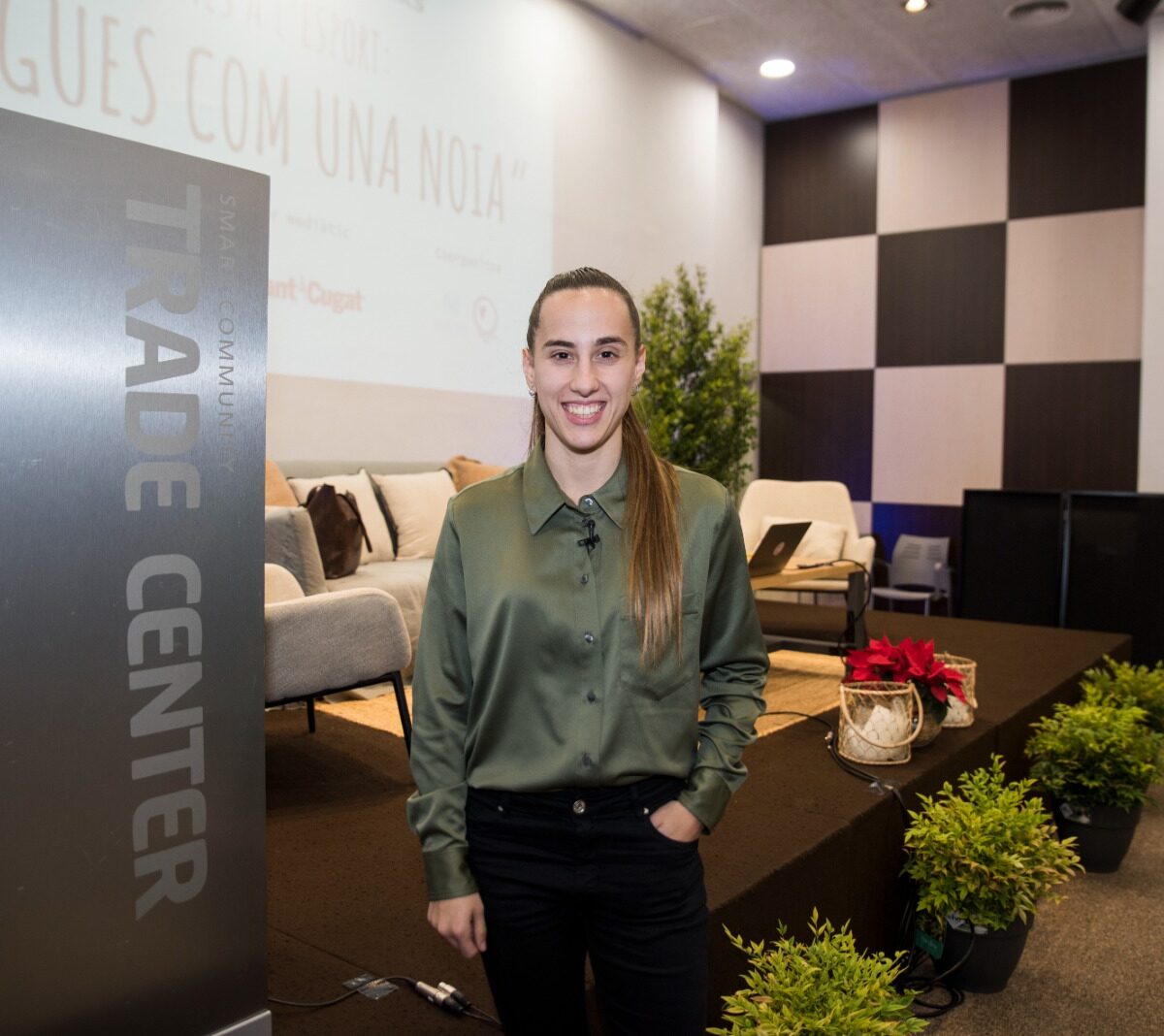The sports journalist of TVE, FIFA World Cup narrator and player of Aniquiladoras FC, Alicia Arévalo, was one of those in charge of giving her testimony in the last SC Trade Center Talks of 2023, and how she has lived the fact of being a woman in one of the imminently men’s sports such as soccer. We talked to her to explain her experiences in first person.
What is your experience as a woman and female athlete?
We women have broken many barriers, many, but we are still in this fight. I think we are doing a good job, not only we who are in the age of maturity, that we have grown up, that we are showing that we can do some things, also from the base, as I say, in education, in talks, also in school. I think it is very important to know that women, whether they are soccer players, basketball players, tennis players, can be professionals and can do things just like men.
Have you experienced difficulties in your football career because you are a woman?
Beyond the distinction, when I started playing soccer, I was the only girl, who had to change alone in the locker room. For this reason, I could not share that moment of victory and celebration with my team. This made me very sad, and maybe if the game was going badly, I cried alone, if the game was going well, I celebrated alone or with my mother, who was the one who always with me. In my opinion, it is important that there are many teams and that parents take their daughters to play soccer or basketball, or any other sport and share those unrepeated moments that I could not experience at the time.
Have you ever been told “you play like a girl”?
Yes, many times. And I think that now we have transformed this phrase into a positive connotation. We have left aside the phrase “you play like a girl” meaning that you play badly. Now “you play like a girl” is to think of Aitana Bonmatí, is to think of Alexia, is to think of Athenea del Castillo, is to think of female referents who have reached the elite and are showing an incredible level. For me, the connotation has changed to positive.
You are also part of the Queens League, that helps giving more visibility and awareness to women’s sport?
Yes, obviously, everything that makes it more visible that women play sports and that we are followed and supported is very welcome. I think it is a very different format to federated soccer, as we have seen, it has its own rules and regulations. Basically, it is being given the same opportunity as the men’s category, so we charge the same, the conditions are the same and in the end, it is a little bit what we were demanding from the soccer federation. Obviously, the number of licenses and everything that the men’s side generates cannot be compared with the women’s side, but we hope that the same thing that is being done in the Queens League, where there is equality, will also be done at the federated level.
At what age did you start playing soccer?
When I was 8 years old
Who were your references in those days?
When I was seven years old, I don’t remember any name of a girl soccer player, I didn’t have any reference. It was always Ronaldinho, it was Belletti, or the person of the moment. In fact, the references were men.
As a FIFA World Cup commentator, you are also breaking barriers.
Yes, because it’s not common to hear female sportscasters.
How do you appreciate that women are being in charge of places that were previously reserved for men?
It was not because we weren’t good enough to do it. We weren’t given the opportunity to do it before. Soccer is a sport closer related to the male gender, so we did not have a place. So, the opportunities to explain soccer as women were impossible, because we were not seen as experts in this. We couldn’t play it and we couldn’t comment on it, because we didn’t understand soccer. Now the range has opened up and, evidently, we are showing that we have two eyes just like men and that we have the potential to explain soccer and also to play it as they do.
What would you ask the up-and-coming generations who are also dedicated to women’s sports?
I would tell them that if they have an illusion, to keep on it, to go ahead with it: They have to fight for their dreams and illusions, because in the end, if you yourself put limits you are self-boycotting. Therefore, there are no barriers, the glass ceilings are already being broken, now there is no excuse to go out and do what we really want to do.
You have been here before at the Trade what did you think of it?
No, I had not been here before, but I think that the facilities are wide, bright and very good, and as for the talks, it is essential to give this kind of talks to make people aware, to make young people aware, especially from the base, from when we are small, from elementary school.
